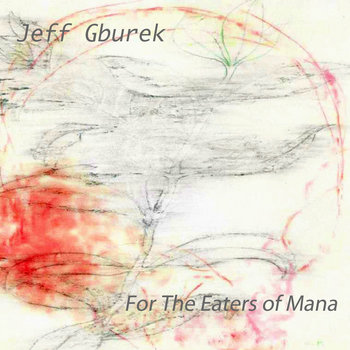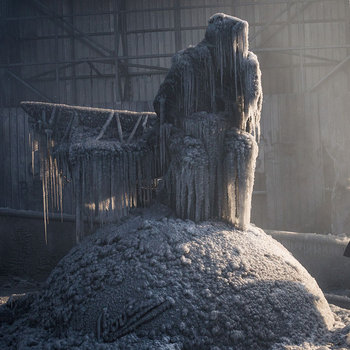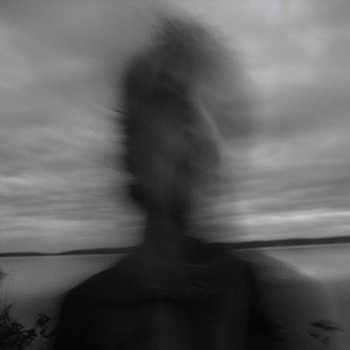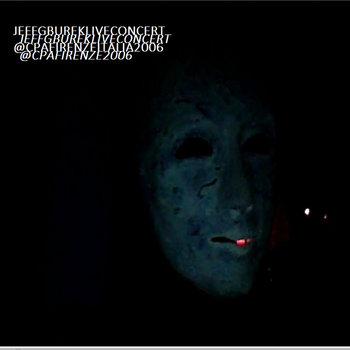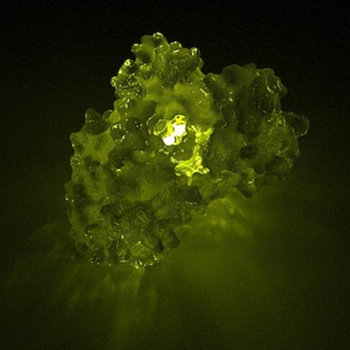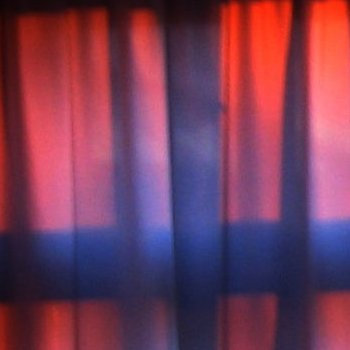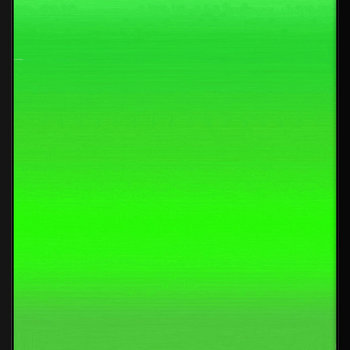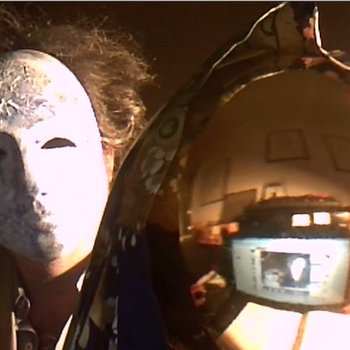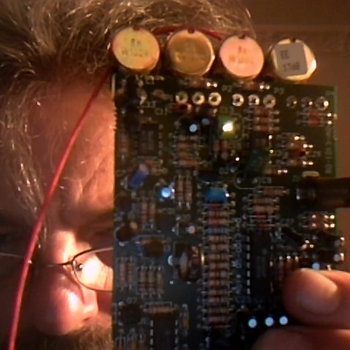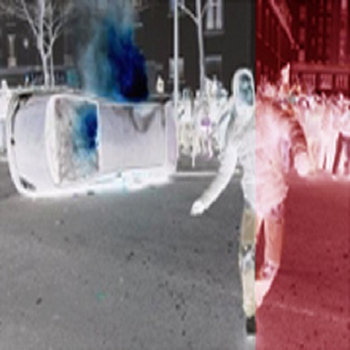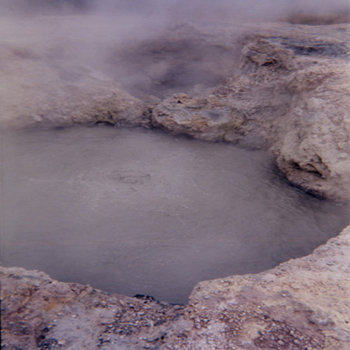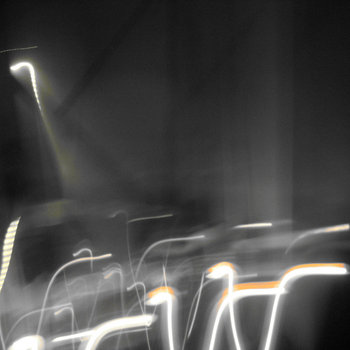
Jeff Gburek, 1963, guitarist/electronic music composer, sound sculptor working throughout Western Europe and the USA. Extended and prepared guitar techniques, signal processing, open source applications and field recordings textural, concrète, electro-acoustic music, wherein extreme pianissimo, organic object manipulation and silence contrast energetic swells of electronics. For 8 years he has worked with movement artist Ephia in Djalma Primordial Science evolving a praxis of body and sound through performance and pedagogy. Other projects include the Berlin-based electro-acoustic trio ZYGOMA with percussionist Michael Vorfeld & sampling by Michael Walz.

Appearances with Keith Rowe, Tetuzi Akiyama, Kyle Bruckmann, Pascal Battus, Raven Chacon, Tatsuya Nakatani, Annette Krebs, Lucio Capece and Tom Carter (Charalambides), show him crossing many strains of improvised, electro-acoustic and experimental music. Stones, found objects, phonography, electronics, digital manipulation, studied Javanese and Balinese gamelan music, developed as a percussionist studied the theories of Partch and Xenakis while working in the dance/theater/butoh project Djalma Primordial Science. STEIM residency and Darmstadt summer, building a unique electronic environment for processing guitar and field recordings at STEIM in Amsterdam, September 2005.
What was the first musical sound you remember?
Yes... exactly... well, even a single memory seems to come with a cluster of associations, other memories inside another memory, "the center cannot hold" and while it's not mere anarchy loosed upon the world, it's very hard to make a chronology for the memories, to establish the first... So, maybe, yes, this is the subject of dreams and the displaced substance of what we make in every form of art...
So, what do you dream about?
That rather unmentionable sound and a few other things I'd like to do and then about other things I am not quite sure I can ever understand...
Why did you decide to pick up the guitar?
I have an uncle who as a young man played the drums in a rock/country-western/polka cover band, in Buffalo, NY. Every time I visited, after the social niceties, I would ask to be allowed into the basement to freak out on the trap set. At one of the band rehearsals the guitarist gave me some rudimentary instructions on an instrument I could just barely hold. My parents later bought me a kind of kiddie acoustic guitar but my first instinct before any studies was to tune all the strings to tones I liked and to drum on them with a pair of pencils. Some kind of primitive synthesis. In a sense the guitar came to me pre-deterritorialized, my first use of it was prepared, or just weird.
Which work of your own (or as a sideman) are you most proud of, and why?
I'm very happy with "The Watermark" and "A Million Voices Minus One", both recorded in 2012 in my home studio, and both great departures from the work in EAI that I had been consumed with. The cd "Respect" with Tetuzi Akiyama, also. There is also the unreleased sequence called "Apophis" that I have worked on since 2010-- wherein I use all the skills and instruments, including granular synthesis, radio captures, into the mix. "Apophis", after the near- Earth asteroid and the Egyptian serpent of chaos. It's a musical interpretation of the idea of cataclysm and placidity intertwined in bliss broken apart by vision that turns one theoretically blind. It's a domestication of the elementary forces in the universe doomed to failure. It's pretty good. It needs a label.
Which is the main border, the main drawback of the guitar?
Historically speaking, I had reached a personal and social impasse, which had little to do with the guitar itself; I was around small town musical conservos, if I did anything weird, I would be censured, even thrown out of the band. After I heard Derek Bailey-- and quit the bands--, I got into musical territory my teen peers playing Zeppelin couldn't hang with. So I began recording with a two-track, turntables, some guitar noises, loops I created with 8 track tapes of Charles Mingus, which means I studied Mingus backwards and forwards, and off-side. These baby syllables in the language and technique of Musique Concrete took their cue from the Beatles Revolution No.9, which both frightened and fascinated me. Later I read about the production of Revolution 9 and realized what a step had been taken, based on steps already taken by electronic music composers Stockhausen, Pierre Schaefer, Pierre Henry, Luigi Nono. Later I read that McCartney argued that Revolution #9 should not be included in the "white album". I often wonder what might have happened to me had this "seed" not come to germinate in my mind. It came as a sign not only of new musical techniques but the presence of the social upheavals of the 60's which still seem to be playing themselves out, while the techniques themselves (loops, cut-ups) have more or less become ubiquitous.
What do you change or add to your guitar?
I change the strings, when they break. (Laughs). No, seriously, each guitar has a different function. I have an acoustic I use for finger-picking music. An electric that is for tonal playing but it's multi-taskable. An electric for prepared table-top actions. (Pascal Battus has that wonderful phrase "la guitare "environnée", the guitar environed, surrounded by stuff). The only things extra are the piezo-electric microphone elements that can be positioned where I want them to catch other resonances. I have a few free-standing coiled pick-ups as well. But I have a long history of using small speakers, telephone receivers etc.. I derive pleasure from small motors hacked out of cd players and cassette decks modulated with a voltage potentiometer, so they spin at different speeds and generate different tones. Ebow in there sometimes, violin bow. psaltery bow and slides of various weights (bottle-necks, brass, pedal-steel slides). I place a small zither on top of the guitar strings at times so those vibrations pass through the pick-ups. I even seriously tried to attach it to the side of one guitar, and made mess. I have dreams occasionally about guitars that are more like harps and one I dreamed in particular had long wires attached to the resonator and it had to be dragged across the floor so that the movement vibrated the strings. I use also a miniature theremin and various cracked pedals which are not connected to the guitars in anyway.
What’s the difference between a good guitar and a bad guitar?
Every guitar has some good sounds, sweet-spots and the like. I guess a good guitar is the one with the most of these. I've gone through hundreds of guitars. There's no single favorite because I think about music as organization and orchestration of sounds which depend in turn on others sounds... so, yes...
8. Do you play other instruments? Do you approach them differently?
There has never been an instrument I wouldn't dare to play experimentally. This freaks out musicians who believe you have to study an instrument formally. And while I have nothing against traditional technique and virtuosity, I am usually looking for certain sounds from instruments, I know how to get them, and I don't consider being able to play a Mozart concerto on the violin, for example, of any use to me at all in making my own music. But in any case, I tend to gravitate towards string instruments because my muscular coordination has developed in this direction. And I don't touch reed or brass instruments much because embouchure takes time to master, let alone the circular breathing you need to get the most interesting effects. I used a bass recorder on "The Watermark" cd and in a peculiar way in that I sing through it while playing but I wouldn't be able to play an entire concert doing so. I studied Javanese and Balinese gamelan and so I had some experience in this area of tuned percussion instruments and learned how to play the rebab-- a kind of double-coursed spike-violin. I also studied the oud for a while and learned a bit about Arabic maqam.
Define the sound you're still looking for.
My oeuvre is variegated, some would say schizo, and much of it still invisible to people, so I can't answer this directly other than to say I am looking for different sounds pertaining to each realm of activity. My work is in between two generations, lost there so far, between the old school experimentalists and the native digital generation. I am looking for new sounds, ones I dream, or ones I discover accidentally, through tireless experimentation, and then l learn how to re-create them under more controlled conditions. I'm also interested in accidence per se, as nature being "smarter" than humans, the intervention into rational control systems. That said, I don't feel that my work is focused primarily on any search for novelty so much as discovering a different sensibility about organization and listening and permissions.
What other extended techniques do you use?
I've been very interested lately in using the violin bow interspersed with pizzicato on my Hoefner electric, getting a contrast between the two unique attack systems. I enjoy being able to create long cello like tones, working with the overtone series and adding hammer-ons, bell like tones. Variances in the bowing angle on 5 strings (yes, I only use 5 strings) creates extraordinary shimmery ringing clusters you just can't obtain otherwise. It also permits me to play a bit like viola-da-gamba and add some ghost of folk or classical music.
11. Which living artist (music, or other arts) would you like to collaborate with?
I play with Tetuzi Akiyama, whenever we can arrange it; the next concert will be here in Poznan, Poland, in November and we just released a new cd called "Respect" on Bruce Hamilton's Spectropol label. I and Karolina Ossowska are preparing a cd for a joint-label production (Spectropol, Catalogue of Wonders and the third TBA).
I really loved playing music in the home studio of butoh dancer Kazuo Ohno when I was in Japan many years ago. Keith Rowe, Eddie Prevost, Rhodri Davies, Pascal Battus, Ayankoko, Joseph Angelo, (I have played with them all and would again, anytime). Olivia Block (there's always tomorrow, for that). Martyna Poznanska's work interests me. "Coppice" (Noe Cuellar and Joseph Kramer) -- prepared pump-organ and magnetic tape -- a dream-machine, an over-grown garden, full of bioluminescent algae and fossil. Filippo Panichi, who's in Italy, (we should have a CD or net-release available soon). Wilhelm Matthies. I want to prepare dance-hall beats for M.I.A. I also have done some sonorisation for works by the poet Stephen Ellis and I would love to do more of that.
What dead artist would you like to have collaborated with?
It would have been great to play with Sun Ra's Arkestra. Or the early AMM. John Dowland? Crash Worship? But to the degree these are "voices" inside me, they cannot be considered dead.
What’s your latest project about?
Always about outer space, or inner, "between the inner memory and the outer archive" (Sloterdijk)... Rather than saying anything about the next project (something that I'm still dreaming), I'd prefer to make a kind of general observation on aesthetics by introducing an idea from Octavio Paz. In his book of essays published in English as "Alternating Current" (Arcade,1990. pg 22) , he writes:
"The time of which the creations of primitive peoples are a living symbol is not antiquity; or rather, these works reveal another antiquity, a time previous to chronological time. A time before the idea of antiquity: the real original time, the time that is always before, no matter when it occurs. A Hopi doll or a Navajo painting are not older than the caves at Altamira or Lascaux: they are before them."
I've alluded to this dynamic in my replies above: the primitive synthesis (finding that the guitar was already a kind of tunable percussion instrument) and to dreams (which can never be entirely pulled through the eye of the needle into fully manifested materiality). These are the sources, the springs. They are out there, ahead of me, in a time before me, outside of time, primordial. The guitar itself depends on how we think about it. Keith Rowe's mythologem refers to Pollock's painting on the floor and this happened in the 50's. Keith started using the guitar in a "flat" manner in the 60's. This means something to me: not a history lesson but an actualization of pre-history. "That is always before, no matter when it occurs." We can follow a path of movement towards the radicals of sound and music themselves to the monochord of Pythagoras. All of these actions are simultaneously inside and out of time. Just as I am here.
Bandcamp Discography
Saiko, Session II: "Has Anyone Ruined My Soul, Like Me"
For the Eaters of Mana
Red Rose for the Sinking Ship
Ramifications
Maidan, 2014
The Watermark
a million voices, minus one
Jeff Gburek
Jeff Gburek
Jeff Gburek Live@CPA-Firenze, 2006
Chryptochromes, for Paul Klee
The Hour of the Devil by Fernando Pessoa, translated by Jeff Gburek (pdf) with Movement 4 of the "Apophis Cycle"
Slope/ The Experience of Losing Control
pRIMo mArZiaNo
the why not album
jeff gburek elecTronica volume II
jeff gburek elecTronica volume II
the why album
In Moment Hatching
Spectrograph on Lou Reed
Fulica atra vs. Rana esculenta
Magnolia acuminata
Follower from the Gorge
Radio Wide World, Flux & Permittivity
Hermaphroshoot: Jeff Gburek & Stephen Ellis
5 Books of Disquiet
sKETCHES of Several SouthWestern FeLONs ON tHe EvE of thEIR JUST demise
Baranca del Cobre: Meeting with the Raramuri
3 Śmigus-Dyngus Caprices for Processed Non-Player Violin, Voice, Organ, and Ghosts
PHYSICAL ADDRESS
mass and momentum
Jeff Gburek
Jeff Gburek
the only escape is a dream
Jeff Gburek
Jeff Gburek
Stinging Cassettes! Java/Bali
Multi-Binaural Acoustic Guitar
Solo Gatto (for Edo Pisto)
Virtuous Circles: Jeff Gburek
Jeff Gburek
Jeff Gburek
Bayou Coquille, Louisiana
Jeff GbureK
Jeff GbureK
the black transparency II
Jeff Gburek
Jeff Gburek
Djalma Primordial Science @ Knitting Factory, 2001
Djalma Primordial Science
Djalma Primordial Science
Fabietta's Theme
Jeff Gburek
Jeff Gburek
Dead Man's Chest, 2 for Zbigniew Karkowski
99942 Apophis Cycl

